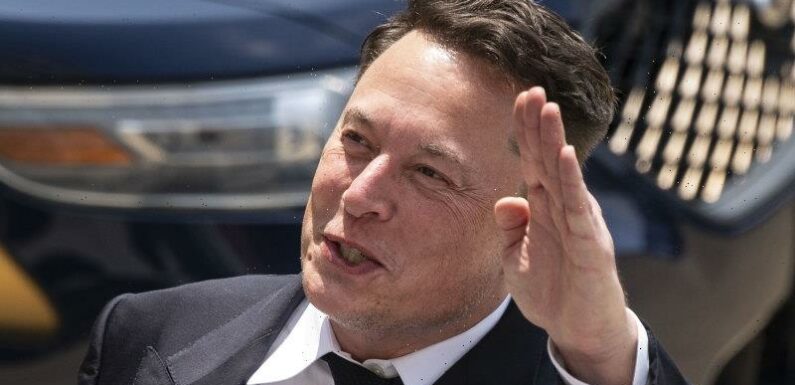
I woke up yesterday, looked at my to-do list and saw that the top item was: “Delete your Twitter account”. I hadn’t actually tweeted in years, so it was something of a quiet protest, but Elon Musk giving Donald Trump the green light to use the blue bird was the final straw.
Why am I, and many of my friends and colleagues, ditching the platform? And perhaps more importantly, why are so many Twitter employees flying the coop? Elon Musk does not seem like a fun guy to work for, despite the morale-boosting emails saying things like: “In an increasingly competitive world, we need to be extremely hard core. This will mean working long hours at higher intensity.”
Elon Musk’s takeover of Twitter has resulted in chaos, mass layoffs and foundational changes to the platform.Credit:Getty
Who knew? Only anyone with a job these days. But hey, it probably helps to have a spaceship when you need that rare time out. Turns out a lot of them did leave when given the heads up. A lot of the rest were already sacked. So, where to now for Twitter?
There has been a lot of focus on Musk’s allegedly chaotic and authoritarian takeover of the platform, but the reason people are deleting their Twitter accounts is his illiberal and totally untutored idea of what he calls “free speech”.
Like a lot of privileged white men, he appears to have no understanding that speech is not free. Even in the social media age. It depends on who owns the platform, who regulates and moderates the speech and who has the loudest voice in the room.
When announcing his decision to reverse the permanent Twitter ban on Donald Trump, Musk said it was: “morally wrong and flat-out stupid”. He described himself as a “free speech absolutist”. It is yet unclear if Trump will return to Twitter.
The Twitter headquarters in San Francisco.Credit:AP
The most interesting thing is Musk’s failure to define what he means by “free speech”. That’s a can of worms Musk does not appear equipped to open. Speech has never been free or unregulated. The classic legal example is you can’t cry fire in a public venue. Nor should you defame someone. You are not allowed to be in contempt of court.
On social media, most people don’t know that because they don’t have a law degree. That’s why we need trained and expert content moderators. The online and social media era ushered in a more democratic opportunity for people to speak. But Musk should have a handle on what he is unleashing without competent moderators.
It has also brought with it a bag of trouble. Misogynists, antisemites, Islamophobes, racists, homophobes – some of them bring the full set. Why is it important that their hate speech not have a platform provided under the guise of free speech?
Vic Alhadeff, who spearheaded a 2018 campaign which achieved a NSW law against incitement to violence on the basis of race, religion, gender or sexual identity, notes that everything begins with words. “The Holocaust didn’t begin with the gas chambers,” he says. “It began by demonising, marginalising, isolating. So that violence was the next logical step in a gradation of othering. It is a given that free speech is a cherished value; yet so are the democratic principles which, if left unfiltered, it threatens to trample.”
We are at a precipice when it comes to democracy. That sounds like an overwrought claim. But when we watch what has happened in the US it is a reminder that free speech should never be taken for granted.
Humans have survived thousands of years of technological advancements, from inventing the wheel to the train or Twitter. The real question is how do we use them well? How do we use them to improve our humanity.
But you’ll have to excuse me now, I’m busy trying to follow my own sanctimonious advice by shutting down my Twitter account. Now, where’s my bloody password?
Catharine Lumby is a Professor of Media and Communications at the University of Sydney. She is the author of a forthcoming biography on the writer Frank Moorhouse.
The Opinion newsletter is a weekly wrap of views that will challenge, champion and inform your own. Sign up here.
More original opinions
Poor little rich kids: There aren’t swathes of research on the woes of rich kids. There is some evidence they’re at greater risk of battling depression, anxiety and substance abuse, so why aren’t we talking about them more?
Morning checklist: There are three questions Jessica Irvine asks herself every morning, and if she can answer “no” to all three, it’s sure to be a good day.
Life’s golden rule: Being back in her old family home after a divorce and raising kids there was “beautiful agony” for Kate Halfpenny. That’s why she now never looks back.
Most Viewed in Technology
From our partners
Source: Read Full Article

